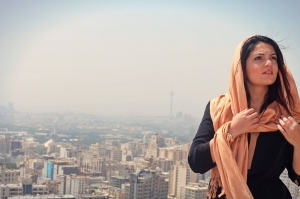Imagine a career in which you are trained to learn about a foreign culture and language, and all the while experiencing living in a whole new city for a few years. Imagine having the opportunity to do that in several cities. Now imagine doing all that with a decent, if not generous salary, and all the while being granted cost of living stipends, foreign travel allowances, health and life insurance, paid leave, a retirement pension and more.
You’re all set.
Welcome to the opulent life of a diplomat. They’ve been around for centuries and belong to the oldest form of foreign policy institutions. With recent cuts to the profession, many wonder if it is time to re-evaluate the profession in general. Countries, namely Western such as the United States and Canada, have implemented Foreign Service cuts. With millions of dollars cut, embassies are closing, properties and official residences are now on the market for sale and foreign service officials are losing their posts. Contrary to countries in the East, such as China, where there is a boom of funding in foreign service. Are countries such as The United States and Canada benefiting from foreign service cuts? Or are the cuts ultimately compromising national security and harming national interest? While some argue that those belonging to diplomatic missions are a necessity for the state, others argue that there is an absence of specific roles, responsibilities, duties and professional training and therefore serves little or no purpose for the state they represent.
Are diplomats just members of a lavish profession, who reside in foreign countries, wining and dining from 9 to 5? Or do they serve a greater purpose?
Arguably, they do serve a greater purpose.
Diplomats, who are appointed by the state, essentially represent and protect the national interests of the state they are from. They promote information about their state. They practice maintaining a good, healthy relationship with host states as well as the international community.
We have Secretaries and Ministers of Foreign Affairs, as well as Secretary of States from around the world that represent the interests of the state and liaise with the international community on foreign relations and affairs. Why then, should diplomats be the beginning and end loop in foreign relations and affairs?
Simply put the role of Secretaries and Ministers of Foreign Affairs, as well as Secretary of States differ in so far as the geopolitics goes. Ministers and secretaries represent the state’s interests when liaising with other states. However, these member of states and parliaments do not reside in the host country and therefore do not have as much exposure, nor understanding of another state’s foreign policy as one would assume. The state essentially sends its agenda on foreign affairs and instructions on what goals to pursue. When it comes to tactics and their approaches, those are left with the diplomats.
Take the EU as one example. 54 out of 136 of its foreign delegations are embassy-type missions who have been granted the full right to speak on behalf of the entire nation. To grant such great responsibility and authorization to a member of the state who is not in fact a president, vice-president or prime minister suggests that the role is of great significance nonetheless.
Another example of the importance of the profession of diplomacy is that it becomes a necessity when dealing with certain states who have left a less than impressive mark on the international stage and/or when a relationship has been severed between two or more states. A prime example is The Islamic Republic of Iran. To have diplomats living both in and out of Iran encourages an ongoing rapport which could lead to talks, negotiations and agreements. To have diplomatic missions in Iran grants diplomats access to view and understand the country’s domestic policies, its economics, society, history and politics. The same goes for Iranian diplomats residing abroad. This opportunity allows for a smoother understanding and relationship between states.
There is no doubt that the profession of diplomacy has its many perks. Who wouldn’t want to travel the world knowing they have diplomatic immunity no matter where they are? But to be a diplomat is more than wining, dining and travelling. It is representing a state and its interests. It is a role which requires creating and maintaining relationships with host states as well as the international community. It is holding a post in which you keep the state’s name with a high regard. And finally, it is a profession in which you are required to open your mind to a whole new culture, language and history.
There’s a reason the profession of diplomacy is one of the oldest in the field of foreign relations and affairs.



